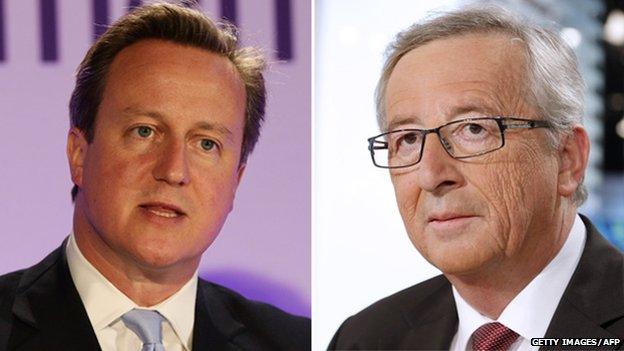David Cameron 'unapologetic' over stance on Juncker
- Published
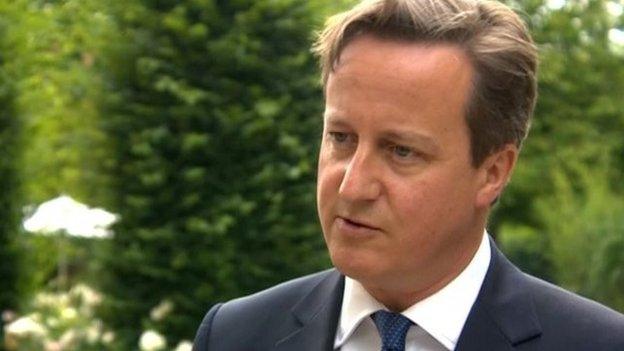
UK Prime Minister David Cameron has said he is "unapologetic" about arguing against the candidacy of ex-Luxembourg PM Jean-Claude Juncker for the presidency of the European Commission.
He said he was "standing up for an important principle", that elected heads of government should choose the Commission chief.
Lib Dem leader and Deputy PM Nick Clegg backed Mr Cameron's stance.
But Labour said the PM had "mishandled" negotiations on an alternative.
Ahead of a formal summit in Ypres, Belgium, at which EU leaders are expected to discuss the Commission presidency, Mr Cameron said: "I am completely unapologetic about standing up for an important principle in Europe, which is that elected heads of government should make these choices.
"I'm also unapologetic about the need for people that can carry forward badly-needed reform in Europe.
"My message to my fellow heads of government and heads of state is that this approach that they are contemplating taking is the wrong approach for Europe.
"They are giving up the right of the heads of state and heads of government to choose the head of the European Commission, and that is a mistake.
"They are contemplating choosing someone who I think will struggle to be the voice of reform and change in Europe, and the public in Europe, and our nation states are crying out for reform."
He vowed to "insist" on a vote at the summit, but warned: "We will have to see what actually happens, but it is the opening step in a longer campaign to secure change in Europe, a better position for Britain in Europe, and a referendum that will be held before the end of 2017."
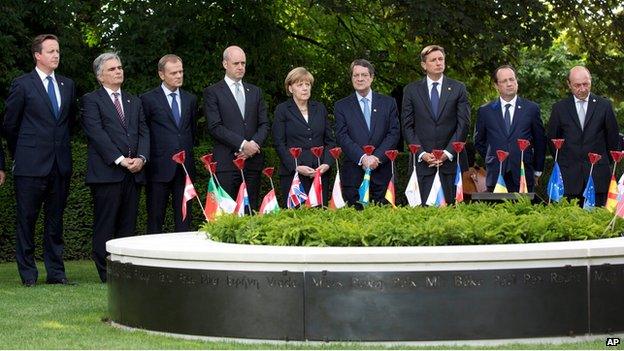
EU leaders attended a ceremony at the Menin Gate in Ypres, Belgium, marking the 100th anniversary of the start of World War I
Mr Clegg said: "I think it's right to stand up for the principle that it should be national governments accountable to national parliaments who make the decisions about who runs, what is after all, one of the most important European Union institutions in Brussels.
"It's not right and it's never been agreed that it should be the right of MEPs to basically handpick on their own who runs the European Commission.
"The moment the European Commission, and the president of the European Commission become subservient to MEPs, I think that would lead to quite an unhealthy and unwelcome rebalancing of the way in which the European Union works."
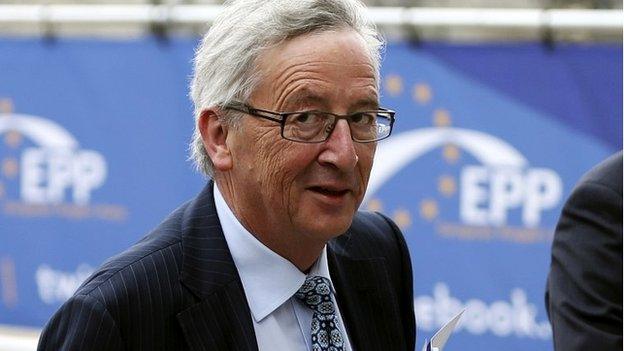
Jean-Claude Juncker is confident he will become the next EC president if "common sense prevails"
Labour's shadow foreign secretary Douglas Alexander had said earlier that Mr Cameron should have focused on building alliances with other EU leaders instead of criticising Mr Juncker in public.
Mr Cameron has vowed to fight Mr Juncker's candidacy "until the end" and is planning a last-ditch appeal to the other EU states to stick to the tradition by which Commission presidents are chosen by a process of consensus by all 28 national leaders, meeting in the European Council.
This is the first time the Commission president has been chosen in conjunction with Euro MPs - Mr Juncker is the choice of the centre-right European People's Party, the largest voting bloc in the Brussels Parliament.
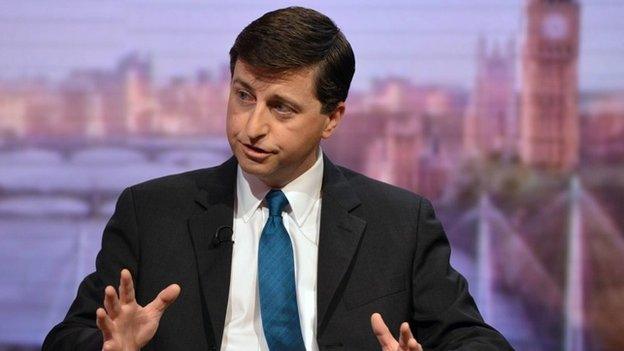
Douglas Alexander has criticised David Cameron's diplomatic abilities
"The next 24 hours represents a key test for the prime minister and his ability to deliver a candidate that would be acceptable here in Britain and people would want across Europe," Mr Alexander told the BBC.
He added: "The handling of these negotiations have turned a Europe divided over Jean Claude Juncker into a Europe apparently united against David Cameron."
He repeated his party's belief that Mr Juncker was not the "ideal candidate" for the EU's top job as he did not embody the "appetite for change" expressed by voters in the recent European elections.
The EU summit starts later after leaders mark the 100th anniversary of the start of World War One at a ceremony in Ypres.
That ceremony will be followed by a working dinner on the EU's long-term policy agenda in Brussels, before EU leaders make a decision on the Commission presidency on Friday.
- Published25 June 2014
- Published25 June 2014
